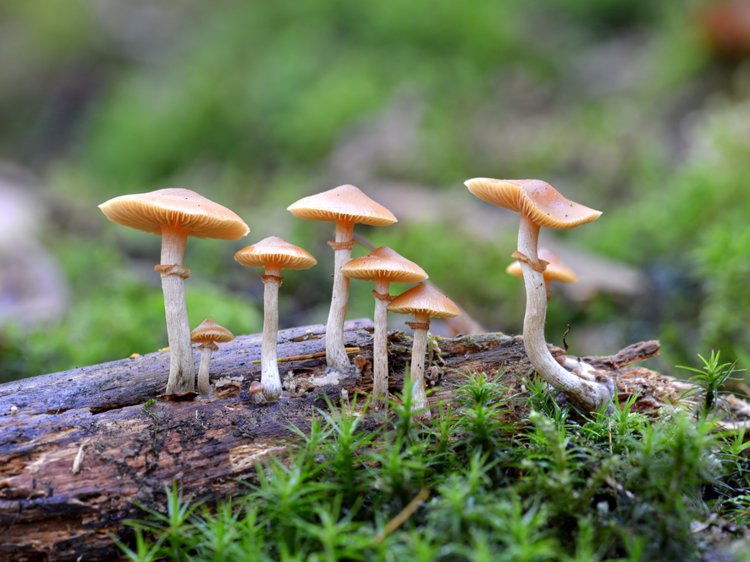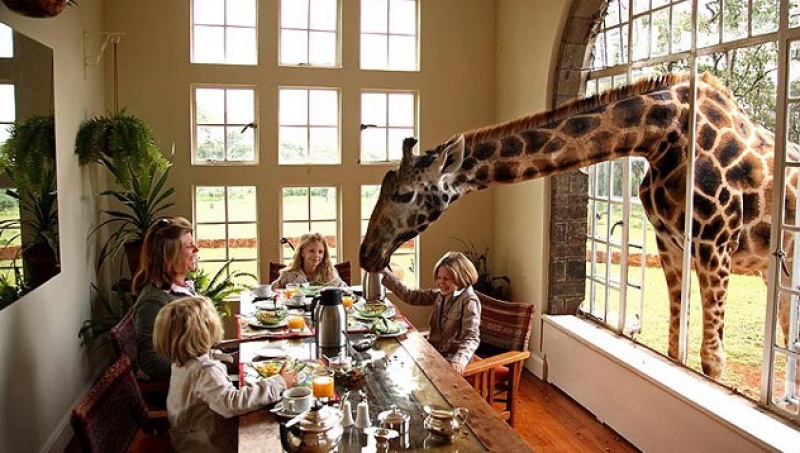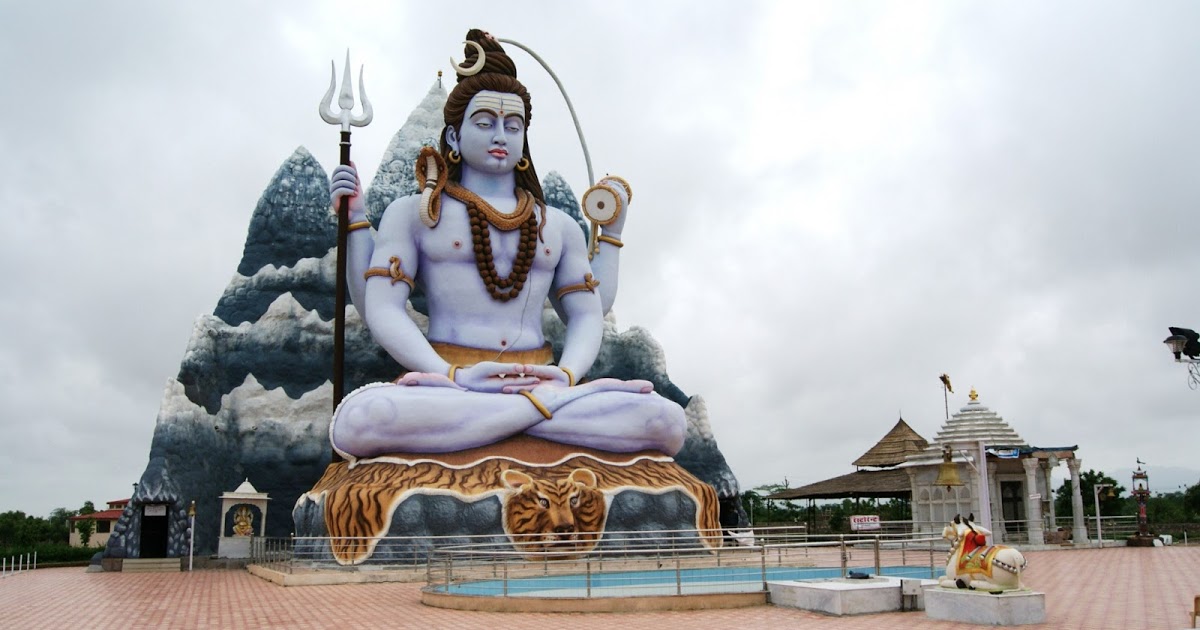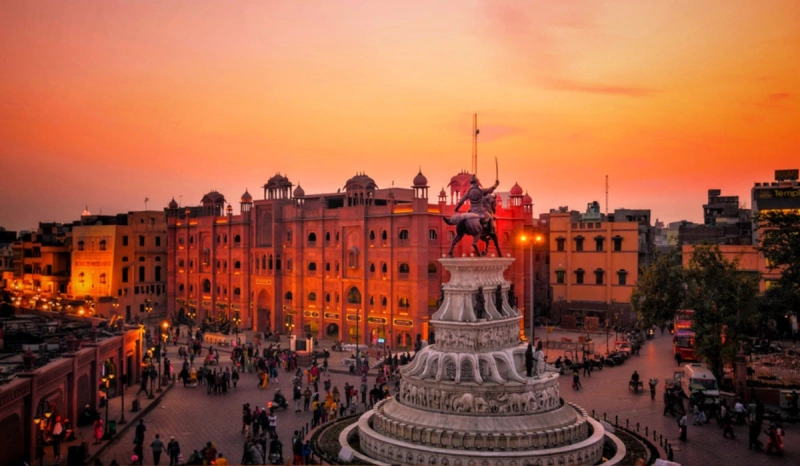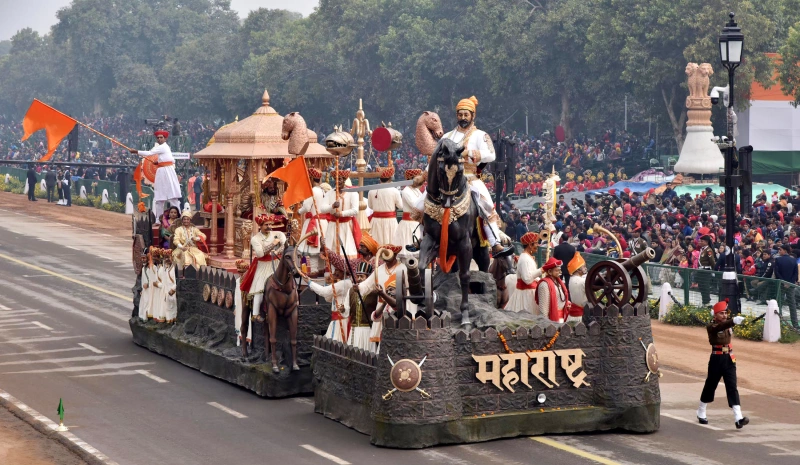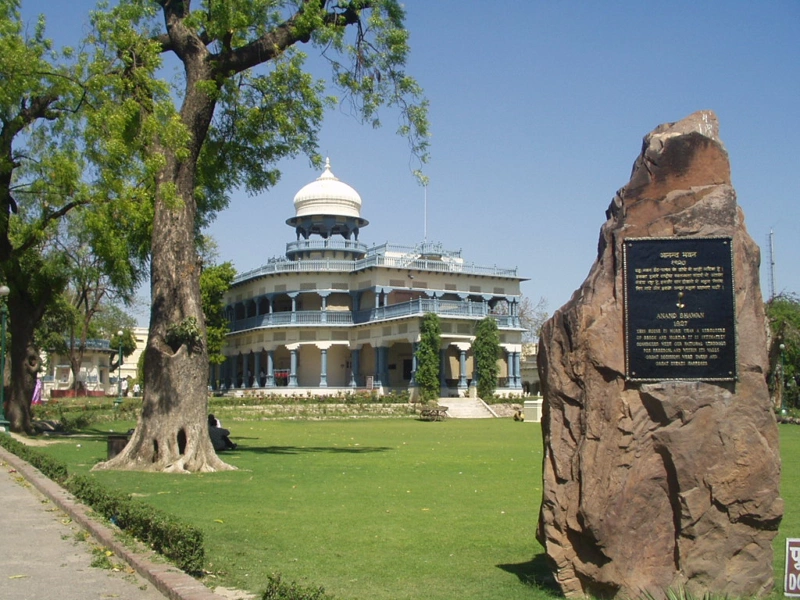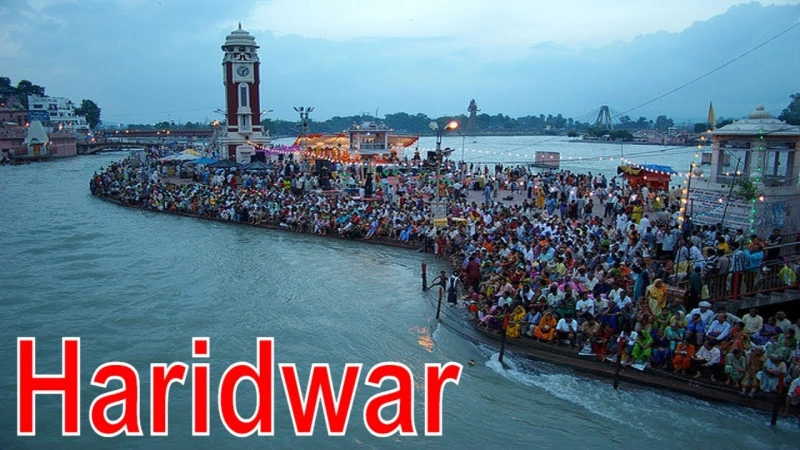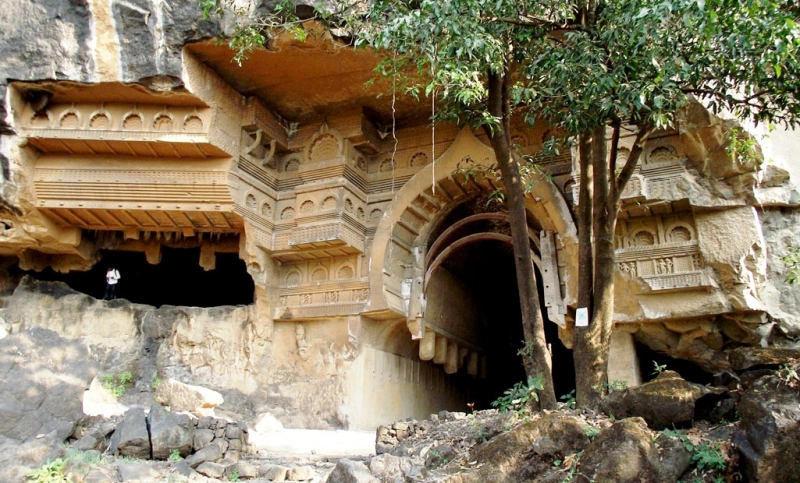
Kondana Caves- A Complete Guide you show know before going to trek
Overview of the Kondana Caves, Karjat
Kondana Caves is situated in the dense forest close to Kondana Village which is roughly at the distance of 15 km from Karjat in Maharashtra and 33 km from the north side of Lonavala. These caves were found back in 1st Century BC and display detailed engravings of Buddhist architecture. Despite several of the caves being damaged by an earthquake in 1900, it is still worthwhile to visit the ones that are still in place. One can explore various chambers of caves and soak in the majestic ambience of the stone-cut architecture. The adjacent waterfalls further add a visual delight to the look of these caves during the monsoon.
Kondana Caves Trek
This trek journey is the ideal area to start your experience as a trekker because of its moderate terrain, which is relatively readily traveled. There are several trekking organizations that one can join, however one can easily arrange a day walk without any guidance.
Trekkers can arrive at the Karjat station and then either hire a car or book a state bus to go to the base level settlement. It takes about 60 minutes to walk from the main village to reach the cave. If your trek includes Rajmachi Fort you can easily access the cave by walking down the western slope of the Rajmachi Fort. Some trees and rocks indicate directions that can be followed as an indication.
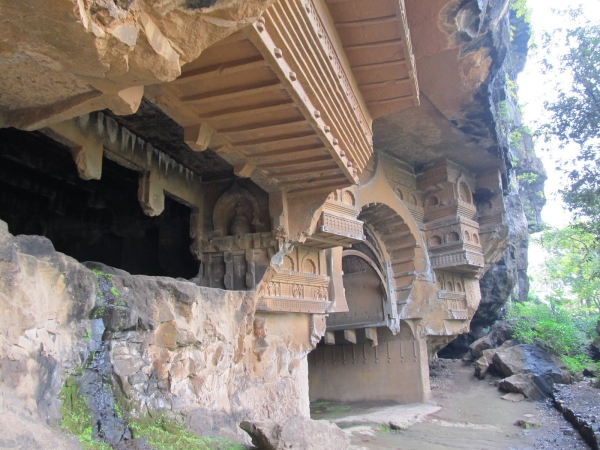
Visitor Advice for Kondana Caves
Before signing up for the Trek, talk to your doctor.
Dress properly for your trek.
If you plan to trek during the monsoon, Don’t forget to carry your raincoat.
Always keep a first aid kit, enough dry food, and drink with you.
Keep your prescription medication along with you.
Be careful as you walk through the dense vegetation.
Visitors are accountable for their own safety and should only visit the place during the day.
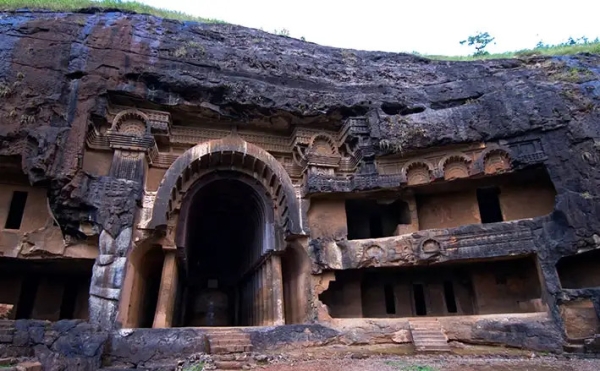
History of Kondana Caves
Kondana Caves is one of the three sister caves which was found during an excavation in 1st Century BC. Apart from this cave two more caves that are Karla Caves and Bhaje Caves were found. These caves are primarily used by Buddists monks for their meditation, especially during the monsoon season. In total it is a group of 16 caves that are the house of Chaitya which elaborate carved antique statues along Viharas with meditation pods, and Stupas that reflect Buddhist history and serve as a wonderful example of traditional Buddhist architectural techniques.
It is one of the few remaining standing rock-cut monuments in Maharashtra. The structures were carved with incredible precision and symmetry and hold sacred significance for the Buddhist community.
Sculptures in the Kondana Caves
You will undoubtedly be fascinated by Kondana Caves' historic carvings and sculptures. The embellishments in this area, depict both men and women in graceful dance positions, are held together by large octagonal pillars. Exploring these caves is a breathtaking experience with exquisitely crafted craftsmanship which can be seen in every corner. The meditation pods in these caverns have a special feature and offer the ideal setting for reflection and meditation.
Best time to visit Kondana Caves
The greatest time to visit the Kondana caves is from September to February since weather is warm and dry, making it simpler to trek to and through the tunnels. If you prefer monsoon treks into the dense vegetation surrounding then plan your visit from June to September.
How to reach towards Kondana Caves
From Karjat, take a bus or rickshaw to Kondivade, then go to Kondane or Kharvandi village because the caves are close to each of these locations.
If heading from Karjat Station, autos and State Transport buses are easily accessible.
The settlement at the base of the caves may be reached in about 40 minutes.
You can easily reach the Kondana Caves by trekking down from western slope of Rajmachi Fort.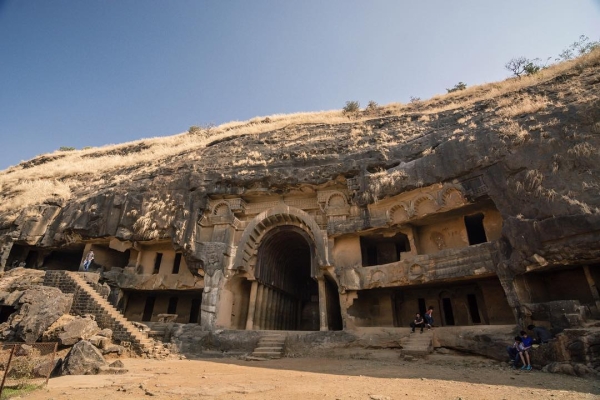
Arcitecture of Caves
There are four caves in the total complex. The first cave is the 65-foot-long, 28-foot-tall, and 25-foot-wide Chaitya cave, which is fashioned like an arch. To the southwest of the series of caves is the Chaitya cave. A Dagoba, a shrine with a dome form and a diameter of more than 9 feet, can be found inside the cave. 49 feet long and 14 feet wide roughly describe the nave in front of the Dagoba. Thirty columns that once ringed the nave are now in ruins, but if you look closely, you can still see where they were.
The Vihara is located to the northeast of the collection of caves. The left end of the porch is mostly intact, even if the front part is completely destroyed. The cave has fifteen pillars, a raised alcove, and a small Dagoba beneath a Chaitya arch that is around 29 feet long and more than 23 feet broad. Six cells with beds are located on either side of the Vihara hall for the monks. The left end of the exterior is mostly preserved, but the front part is completely destroyed.
Another nine cells make up the fourth cave, which now resembles a hole under the cliff. A reservoir that is currently muddied over is located beyond this cave. Under a hanging rock are two more cells and a smaller reservoir that make up the remaining ruins.
The Kondana Caves north west side is totally located deep inside the forest. There are four caves in the total complex. The first cave Chaitya is 65-foot-long, 28-foot-tall, and 25-foot-wide, which is formed like an arch structure. To the southwest side of Chaitya Caves Dagoba, which is a shrine with a dome structure of a diameter more than 9 feet, can be found inside the cave. It is believed to preserve the remains of Buddhist monks. The nave in front of the Dagoba is roughly estimated to be 49 feet long and 14 feet wide. At present there are thirty chambers that once surrounded the nave but now they are in ruins, but if you look closely, you can still see where they were.
Also Read: Mahabalipuram Beach- Explore the beauty of Beach and famous Caves


